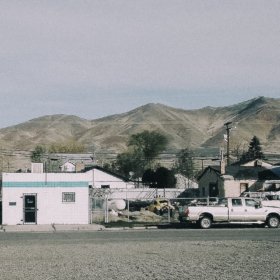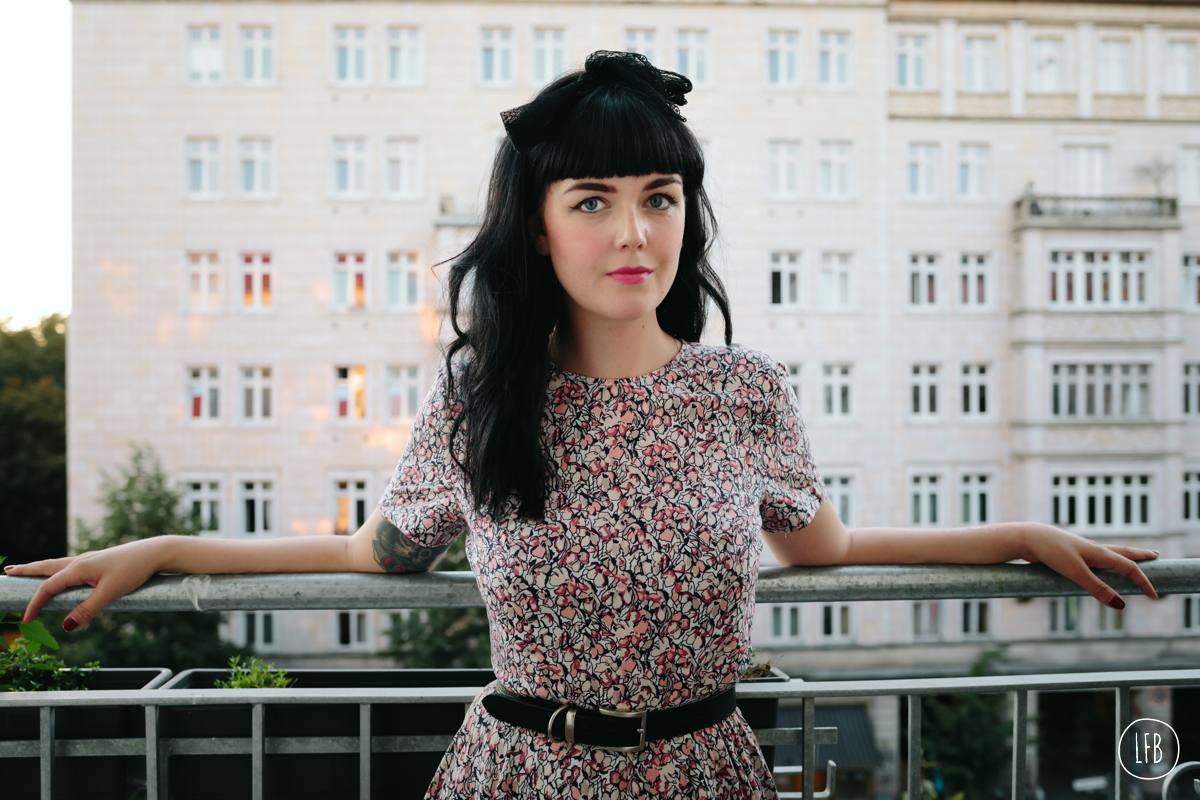Are you tired of the bibble?
There seems to be an awful lot of it these days. If it’s not a self-congratulatory status, it’s a witty caption. If it’s not a photo, it’s a live stream or a real-time commentary on a meal or a show. There are smiles, so many smiles, and peace symbols – why didn’t they die out in the 60’s? Birthday reminders are a particular stress. How are there so many birthdays in the world? Are we expected to celebrate them all? The entirety of current human existence and experience is pushed into our faces 24/7.
Yada yada yada, yeah, whatever. We all know that the information mill we spend over 20 hours a week plugged into ain’t exactly good for our brains. For all its many benefits and the brief, fleeting joy we feel when we see a VSCO’d landscape on Instagram, or rack up the retweets on our latest 140 characters of micro-wisdom; social media is not doing our mental health any favours.
About six months ago, I realised that I was 1000% done with the constant tumbling bore of updates flooding into my brain and downloaded a Facebook News Feed Eradicator. Now, instead of seeing life updates from friends and family, I see a blank white space. If I’m brutally honest, I have pretty much zero interest in anything that anyone posts online (apart from Instagram <3), but that’s not the main reason why I replaced the entirety of Facebook with a single inspirational quote from Yoda.
I did it because the endless stream of current affairs was driving me crazy. For every decent article that popped up on my feed, there were 10 badly written listicles, outrage-stirrers, overblown opinion pieces dressed up as straight reporting and some total fabrications. The same topics were circulating again and again, the same viewpoints regurgitated by an algorithm that thought it knew what I wanted to see. I began to feel as though I wasn’t getting the full picture and that Facebook was at least partially to blame.
It’s fair to say that we are in a unique and strange period of political world history in regards to the dissemination of information. There’s more information available to us than ever, but with this new freedom, distortion and falsehood have been given the conditions to thrive – and particularly on social media. In order to be as well-informed as possible, should we be tuning in or tuning out?
Author and Guardian commentator, Ruth Whippman, claims (in an uncharacteristically incoherent article) that taking a step back from social media and the digital world is a really irresponsible move:
“I regularly reach the end of the day sick with the stale self-loathing of a person who has read the whole internet. I check Twitter in the bathroom, in bed, during dinner,” she says. “…It’s driving me crazy…[but] the rancid sense of rising terror that we often feel in response to the current news cycle is a crucial early-warning system that things are indeed not right. Rather than trying to ignore and appease those feelings of anxiety by disengaging, we should be listening to what they are telling us.”
I get what Whippman is trying to say – that now is not the right time to disengage from politics and the world around us – but she seems to be mixing up two strands of an argument that, although connected, are not the same. Staying on top of current events doesn’t necessarily entail “reading the whole internet” and checking up on your various feeds every other minute.
Of course we shouldn’t be distancing ourselves completely – in this confusing era of alternative facts, it’s vitally important for us to continue to stay informed, engaged and active. But is being constantly plugged into a pot-luck feed of fact and fiction the way to do it?
I don’t think so. A summer 2016 study showed that 62% of Americans get their news from Facebook, Twitter, and Instagram. While 51% of Brits with an internet connection get their news from some kind of social media platform. News sharing is big business and an easy way to stay up to date with our favourite media sources, but it’s a process that is flawed in a couple of insidious ways.
First, fake news. Anyone who hasn’t heard even a snippet about this really must be disconnected – kudos, Luddite. Throughout 2015 and 2016, as the build-up to Brexit and Trump’s astonishing victory mounted and climaxed, post-truth politics took hold and the number of websites pumping out heavily biased or totally fictitious “news reports” mushroomed. This “fake news” is, to untrained eyes, often virtually indistinguishable from the output of reputable news sources. Lies now look legit.
Obviously, all media reports with some kind of bias – journalistic objectivity is pretty much impossible. But there’s a world of difference between facts as reported through biased eyes and “news” that is totally made up altogether. A lot of the latter is written by far-right fanatics who are determined to push their agenda onto a population who are hungry for an alternative, and who won’t let facts get in the way of a convincing yarn.
Some articles are run of the mill news stories from across the world that have been taken and twisted beyond recognition to fit far-right agendas, like the case of the desecrated church in Sweden. Others are made up from start to finish. Most of them are copied and spread by people who are doing it for fun or trying to make a quick buck – bizarrely, many of them are young men with no interest in US politics based in a small, impoverished Macedonian town. None of these people have an interest in telling the truth – it doesn’t make financial or ideological sense. These articles play on the fear and existing prejudices of their target readership – mostly conservative-leaning Americans – and many of the producers care little for the consequences of publishing such material. I don’t know about you, but I certainly don’t want to be forming my political opinions based on bullshit a stoned teenager has pumped out from an Eastern European basement.
Fake news is something we should all look out for – even the most cynical among us can be hoodwinked. The more it’s shared among our peers, the more in danger we are of being sucked in. Which brings us to my second point – the echo chamber effect.
A lot of people are getting increasingly weirded out by algorithms – used by Facebook, Google and Insta – that sift through content and choose what they think is most ‘relevant’ to us. Not only are they usually off the mark – Instagram insists on showing me every single post from a girl I met twice while burying all content from three of my closest friends…ANNOYING – but they have also been shown to actively limit our view of the world by feeding us content that panders to our existing opinions. That’s great when it means that bogus sites are blocked from view, some people might appreciate only seeing “quality” content from the Guardian and the New York Times etc on their screens. However, I firmly believe that getting as close to the truth as possible means examining a story or issue from all angles and viewpoints. Staying well-informed and merely confirming your own biases are two very different things.
We can’t just blame Facebook, though. All of the problems that algorithms pose are nothing compared to what we inflict upon ourselves. As Prof. Kartik Hosanagar said in an article for Wired; “We can easily break free, but we choose not to.” By choosing to click primarily on articles posted by friends with similar ideologies to our own and shutting down or unfriending anyone who disagrees with us, we lock ourselves into a filter bubble that tells us only what we want to hear. And yes, the echo chamber is just as damaging for liberals as it is for conservatives. When we become accustomed to reading about things from one viewpoint only, our minds narrow and we get cut off from the views of others. Shutters come down, and social divides deepen. We become boxed-in, passive consumers of media, rather than active and informed critical thinkers.
That’s why I don’t think that wiping out your news feed is irresponsible at all. In fact, I think it’s one of the most socially responsible things you can do online. Ruth Whippman’s nightmare ideal of being plugged into the rolling news stream 24/7 doesn’t help anyone – it actively exposes us to bogus news and opinion reinforcement, encourages us to blithely accept whatever appears in front of us, and stresses us out to boot. However, I’m not advocating sticking fingers in ears and pretending that nothing bad ever happens. Instead, I’d like to see a shift from passive to active news consumption among my peers. This involves clicking on fewer links – I try to read between three and six articles a day on a variety of topics from diverse viewpoints – but reading and questioning more.
It involves digging out the news yourself, finding the counter arguments (http://www.adweek.com/digital/vincent-gibson-centric-app-guest-post-social-media-echo-chamber/), and looking at historical precedents. It involves trying to make up your own mind about events, based on facts and expert opinion and taking action based on the results. Look into the legitimacy of what you’re reading and the sources that are feeding you stories. Question everything and don’t, for the love of god, blindly accept the blurb that is fed to you as fact.
Seek out the opposite argument, no matter how much you dislike it. Search for the rational voice that counters your belief and ask yourself if any of it is worth considering – unless of course they’re making racist, LGBTQ-phobic, or sexist remarks. In that case, rip them to shreds.
And don’t just listen to me. Check out the links to the articles I’ve posted, find more yourself, and form your own argument. Let’s say fuck you to the bibble, and start thinking for ourselves again.
Photography: Betti Hunter
Post-processing: Rae Tashman






